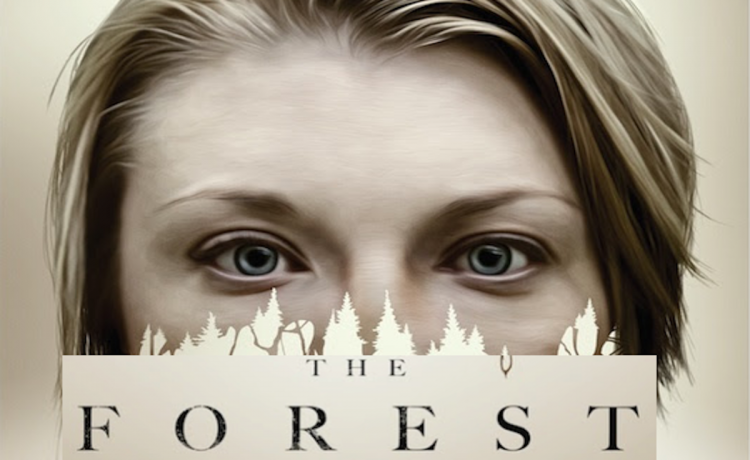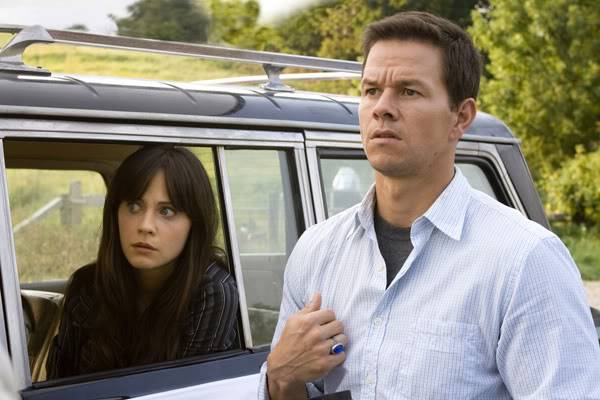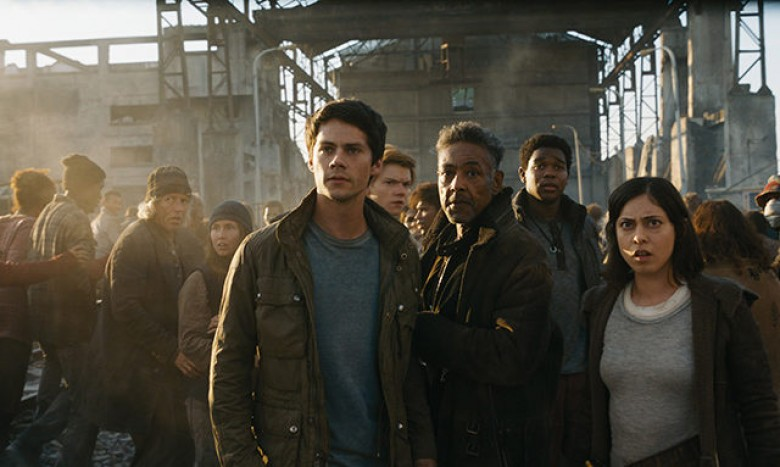With a vast array of supernatural beliefs and some of the most memorable psychological horror movies of the past dozen years, Japanese popular culture offers a wealth of references for any suspense film. Audiences unfamiliar with this legacy may initially find The Forest’s imitative stylistic flourishes intriguing, although first-time feature director Jason Zada and his trio of screenwriters spurn most of the genre’s rich legacy.
By selecting only a few ghostly elements to establish some context and a modicum of authenticity, The Forest seems determined to withhold scares while attempting to establish a persuasive tone, although moviegoers will likely remain unconvinced by a low-wattage cast confined to an unfamiliar setting and a lack of franchise identity.
Zada’s protagonist is Sara (Natalie Dormer), a thirtyish woman of comfortable social status who’s married to Rob (Eoin Macken), a restaurateur. It’s been some time since she’s seen her twin sister Jess (also played by Dormer), who has moved to Japan to teach English. Although they’re close in that twins kind of way, Sara is relieved that Jess has relocated to try something new, hoping it will alleviate her sister’s more self-destructive tendencies. So when Sara gets a call from the school where Jess teaches saying that her twin has gone missing in the notorious Aokigahara forest adjacent to sacred Mt. Fuji, she flies off to Tokyo the next day, leaving her concerned husband behind.
Her urgent response is based on Aokigahara’s reputation as a place where the distraught go to contemplate their fates or end their lives. Unable to extract much information from students or administrators at Jess’ school, Sara travels to the Aokigahara vicinity by train, taking a room in a forest inn where she encounters Aiden (Taylor Kinney), an American who speaks Japanese and claims to be a travel writer. Perhaps a bit too sympathetic to Sara’s dilemma, he explains to her more about Aokigahara’s reputation as a “suicide forest” haunted by angry spirits eager to draw the living into their tortured realm. Despite these rumors, he offers to take her with him on a forest walk guided by a local ranger, if she’ll agree to let him write a profile on her unusual situation.
The next day, Aiden introduces her to Michi (Yukiyoshi Ozawa), who expresses concern about taking Sara into the woods, saying that her sadness over her sister’s disappearance may attract the vindictive yurei spirits. When she refuses to remain behind, insisting she knows that her sister is still alive, Michi leads Sara and Aiden into Aokigahara, also known as the “sea of trees.” Almost from the first moment entering the forest, the strange sounds and visions that have been plaguing her since her sister vanished begin to intensify as the group finds signs of recent suicide attempts. By the end of the day, Sara has seen enough to convince her that Jess is alive somewhere in the vast woodland, so she insists on remaining overnight. Aiden agrees to stay with her and keep watch, even after Michi departs, but neither is prepared for the frightening revelations that darkness will bring.
With the exception of one traumatic event from Jess and Sara’s childhood, the writers offer scant backstory to justify Jess’ disappearance, other than some dubious discussion of past, halfhearted suicidal tendencies. While the dense forest setting, substituting Serbia for Japan, creates a broodingly ominous atmosphere all its own, more than 30 minutes pass before any decent scares manifest. Meanwhile, the trio of hikers wanders around the woods without maps or obvious trails, somehow managing not to get completely turned around.
When darkness brings out Aokigahara’s barely concealed malevolence, the incidents that terrify Sara stretch credulity in a strictly practical sense. A segment depicting how rising fear drives her to question and disparage Aiden’s motivations elicits some inventive paranoia, but it’s not sustained for long. What’s worse, a promising hint that the forest may be acting as an independent, sentient entity that expels or consumes intruders is similarly wasted, while the final scenes entirely lack credibility.
Although he can’t quite get a grip on guiding the lightweight narrative, Zada demonstrates a fluid visual style, particularly in the complex sequences filmed in the forest settings. The horror flourishes are largely by the book, however, drawing little inspiration from Japanese sources or demonstrating much inventiveness. The fairly spare visual effects are also disappointing, offering nothing surprising in terms of either imagery or execution.
Dormer (Game of Thrones) sometimes seems confused by her character’s poorly explained personal mythology, but when it comes to conveying terror, her reaction registers are only mild alarm. Kinney (Chicago Fire) has some intriguing moments and with a stronger script could have made more of Aiden’s inclination for duplicity, but he ends up hamstrung by the narrative’s plot-related demands. Ozawa, a promising American-trained actor, and Macken serve largely functional roles without much opportunity to distinguish themselves.



